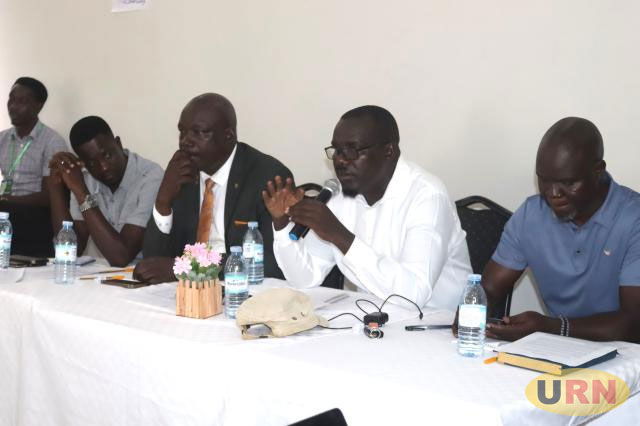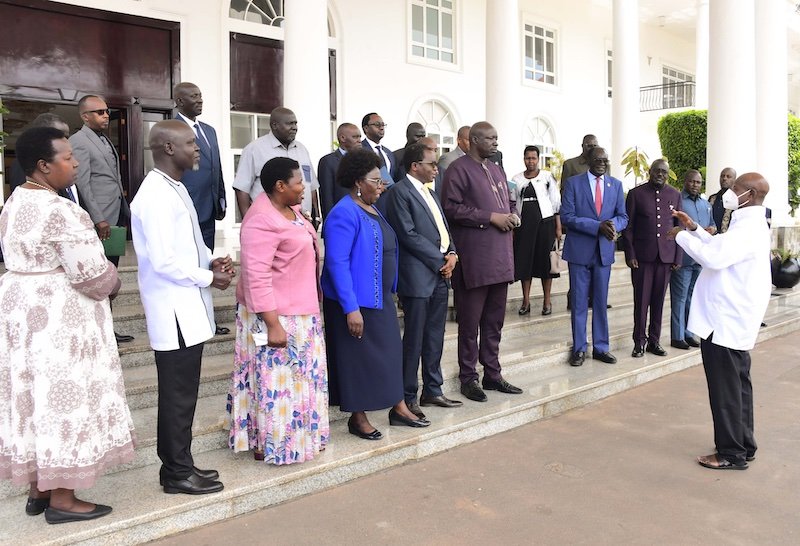Acholi Opposition MPs Launch Consultations on Cooperation with NRM Government
Gulu City – April 16, 2025 – A group of opposition Members of Parliament (MPs) from the Acholi Sub-region have commenced consultations with their constituents to explain and gather feedback on their recent decision to cooperate with the ruling National Resistance Movement (NRM) government.
The consultations follow criticism that trailed the MPs’ closed-door meeting with President Yoweri Museveni on March 13 at State House Entebbe, where they agreed to set aside political differences and collaborate on tackling poverty and driving socioeconomic transformation in Acholi.

Speaking during the first consultative meeting held on Monday with a select group of elites and opinion leaders in Gulu City, Bardege-Layibi Division MP Martin Ojara Mapenduzi defended the move, saying it was aimed at exploring “constructive engagement” with government rather than betrayal of opposition values.
Mapenduzi acknowledged that the MPs initially considered consulting constituents before meeting the president but opted to first present their proposals and gauge the government’s response. “We needed to know whether what we are proposing was even possible, before coming back to the people,” he said.

The MPs presented a 70-page draft document titled Operation Harmony during their meeting with the president. The document outlines major challenges facing Acholi and proposes strategic interventions including reparations for war-related losses, transitional justice, land reforms, commercial agriculture, improved infrastructure, scholarships, and political appointments.
Chua West MP Okin PP Ojara, who led the delegation to State House, described the meeting with Museveni as a “usual engagement” and insisted that the intention was purely developmental. “This document offers a pathway to healing, truth-telling, and unity,” he said.
Despite the MPs' explanations, reactions from stakeholders in Gulu were mixed. Fred Ngomkwe, a Transitional Justice expert, questioned the document’s legitimacy, noting that consultations should have come before meeting the president. He also expressed concerns about the political motivations behind the initiative, citing similar developments in Teso and West Nile.
Prof. Sunday Okello Angoma welcomed the move but criticized the document’s quality. “It needs a lot of work to become a credible blueprint for development. My fear is that it might end up being used for political gain rather than real change,” he said.
The second phase of the consultations is scheduled for April 17 and is expected to attract over 200 participants including ministers from the region, cultural and religious leaders, local government officials, and youth and women leaders.
The legislators have pledged to incorporate feedback from the ongoing consultations before finalizing and resubmitting the Operation Harmony document to the president.